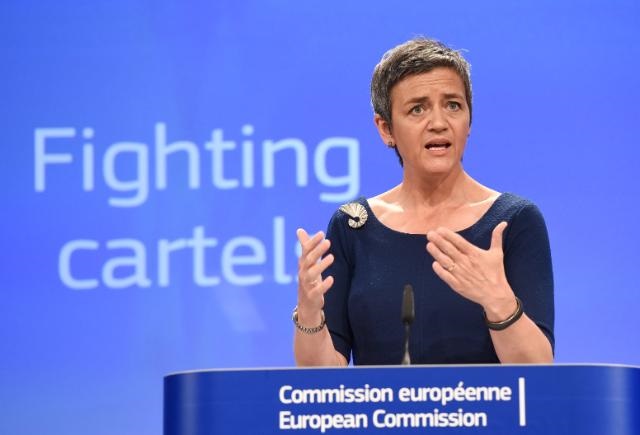Try telling this to the EU Competition Commissioner
 Image: EU Commissioner for Competition, Margrethe Vestager
Image: EU Commissioner for Competition, Margrethe Vestager
As soon as two mobile operators announce their intent to merge, the EU Competition Commissioner’s staff is calculating how much spectrum the new entity will need to give up, if the merger is to be approved at all. It’s like two car companies merging and each being told to stop manufacturing three lines of automobiles and two of their pickup trucks.
Lines of cars and trucks are the bandwidth of Fiat, BMW, Honda and GM. Frequency bands are as much the mobile operator’s stock. Yet they are seen as excessive armaments by many regulators. Competition should be fair and not…competitive.
This philosophy is applied when the merged operator will have only five percent more subscribers as well as when it will have 25% more than the next biggest operator. In our view it’s a case of oligopoly being used to fight competition although officially the concern is with monopoly.
What in fact happens when one operator has more spectrum than the others? That operator can lower prices, increase data allowances, or horde the spectrum without putting it to competitive use in order to preserve its prices (or data usage limits)—or to save it for future use. The lowering of prices or raising of data allowances—along with possibly the introduction of innovative services that call for higher data rates—should do little else than spur competition.
Faced with an operator using more spectrum as a competitive tool, the competing operators face some choices. They can let the quality of their service deteriorate as they reduce increase their data traffic or reduce their prices. They can watch their market shares decline. Or they can invest in additional infrastructure to re-use their spectrum more effectively—through denser base stations, more associated Wifi, the launching of innovative services, or greater coverage to attract more subscribers in rural areas, within office buildings, and so on.
All these measures reflect the benefits of competition. If overall spectrum scarcity is an issue the regulator could limit this by announcing that spectrum will be taken away should hording occur. Regulators can also foreclose further mergers once there are only three operators left. But this is not what happens. An oligopoly of fairness prevails. It prevails at the expense of lower prices, higher data allowances, better coverage and innovation.